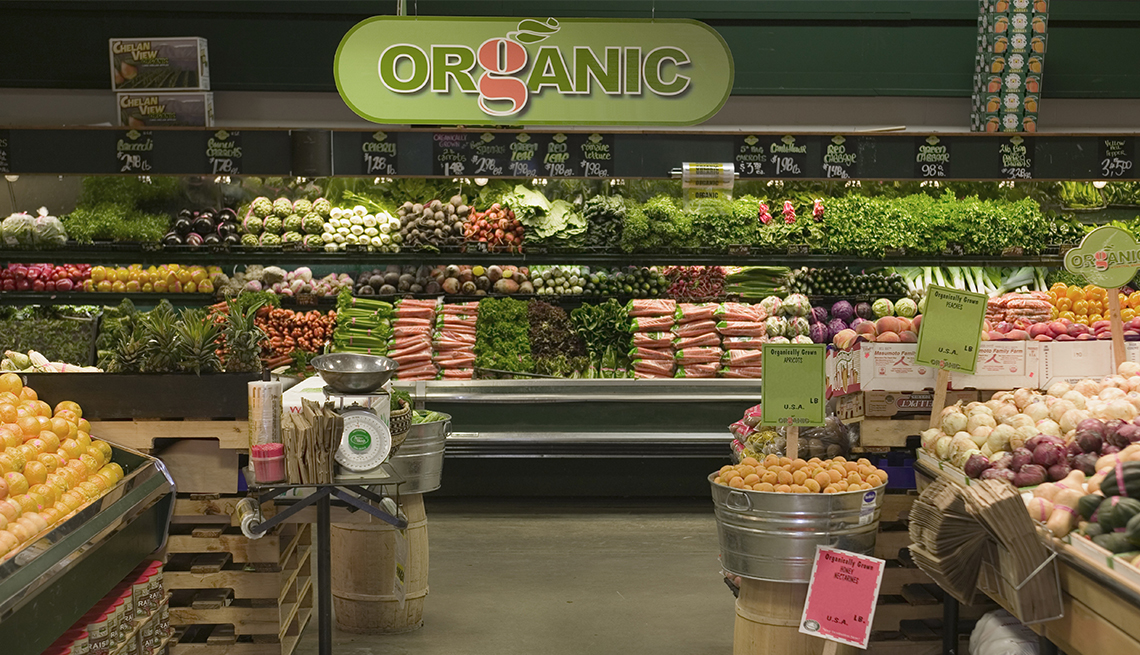
Author mark bittman on health benefits of organic foods
- Select a language for the TTS:
- UK English Female
- UK English Male
- US English Female
- US English Male
- Australian Female
- Australian Male
- Language selected: (auto detect) - EN
Play all audios:

IF I'M LOOKING AT ORGANIC AND NONORGANIC APPLES SIDE BY SIDE AT A STORE AND I CAN'T AFFORD THE ORGANIC ONES, WHAT SHOULD I DO? A nonorganic apple is better than no apple and better
than most other choices. Rinsing conventionally grown produce reduces the pesticide residue and so arguably narrows the difference between organic and not organic. So, yes, get the
nonorganic apples and wash them well. It's almost safe to say, “Never pass up an apple.” WHAT ABOUT TRYING TO EAT LOCALLY? "Locavore” is a relatively new term but an ancient way of
eating. Locavores eat — or try to eat — food produced locally, although, of course, the word “local” is pretty vague. Before food was shipped, everyone was a locavore. Now the term has come
to have a deeper meaning: that what you eat matters to your health, and the quality and composition of what you eat are in turn determined by how the food is raised, what it's fed and
where it's from. Sue Tallon DON'T PANIC, EAT ORGANIC Since 2004, the Environmental Working Group has been publishing the Dirty Dozen, its annual list of fruits and vegetables most
likely to contain pesticide residue, even after being washed. If you're choosing to buy some organic produce, these are the ones to prioritize. * Strawberries * Spinach * Kale *
Nectarines * Apples * Grapes * Peaches * Cherries * Pears * Tomatoes * Celery * Potatoes WHY IS IT WORTH SPENDING EXTRA TIME AND, USUALLY, MONEY TO EAT LOCALLY? Reducing the carbon
footprint, supporting local economies, eating seasonally (and fresh), knowing where your food comes from and how it was raised … all these are inarguably positive attributes, and all are
characteristics of local food. No one but a fanatic could eat only local food, but concentrating on these attributes would mean you were eating better, more ethically, more sustainably. If
you know your produce is being grown on a local farm where chemicals are not being used, you know that you are avoiding those chemicals. If you know the soil is being nurtured appropriately,
you know it's rich in nutrients. If your food has not been in storage and transit for days or weeks, it will have much more of its native nutrient content when you eat it. SO LOCAL
SOURCING MEANS THE FOODS HAVE BETTER NUTRIENT COMPOSITION? In general, yes; though if you're sourcing industrially produced corn locally, then probably not. It makes sense that
agriculture and health are connected — there's no way around it. So the more you know about how and where plants are grown, the more confident you can be about their nutrient quality.
DOES SOIL COMPOSITION AFFECT ANIMAL PRODUCTS, TOO? Oh yeah. This issue is even more important when you consider animal foods. The nutrient composition of meat is substantially connected with
the diet and exercise pattern of the animal. Meat is leaner and has less saturated fat when animals get more exercise, for instance. The composition of meat also varies with what animals
eat and the nutrients in those plants, which are in turn influenced by the soil.
